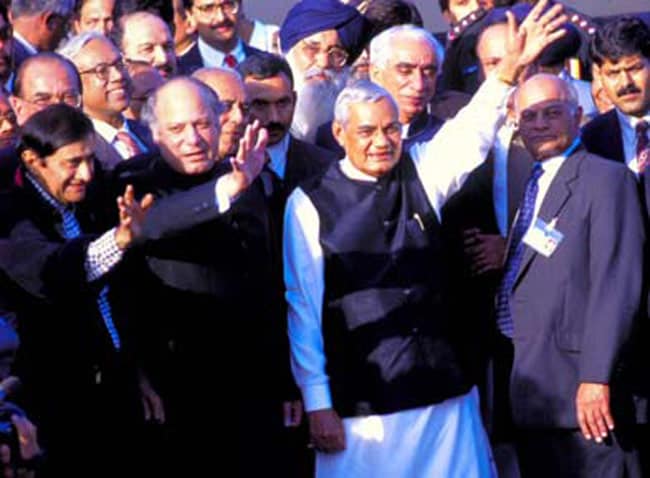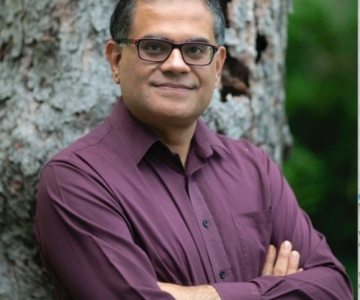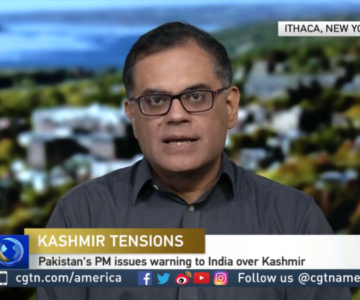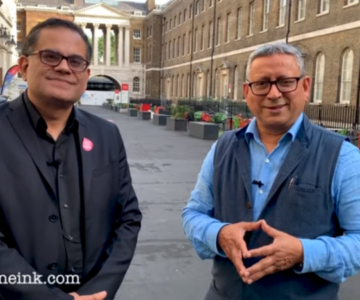Vajpayee with Nawaz Sharif, Lahore, 1999
In Pakistan’s neighbourhood, a tectonic political shift seems to be underway. The Indian voters in large numbers have made their choice by preferring ‘strong’ leadership over dynastic rule, jobs over state handouts and ‘good governance’ over accommodation and appeasement of India’s diverse communities. All such choices are driven by a populist construct of Modinomics and promise of a corruption-free, booming India. In a way, this emphasis on performance was echoed earlier in May 2013 when Pakistan’s electorate voted in a new government and-not unlike India-rejected the Pakistan Peoples Party for a more growth-friendly Nawaz Sharif. On balance, this augurs well for the region where voters are getting smarter and the younger population, distanced from the past, is keen for a better life ahead.
India’s swing to the right is not different from Pakistan’s either. In the 2013 elections, the victorious Pakistan Muslim League (Nawaz) and the second largest party headed by former cricketer Imran Khan were also ‘right-wing’ in their worldview. Both countries now have to tackle the issue of minorities. In Pakistan, the miniscule non-Muslim population is under attack and the Shia minority faces persecution. In the 2014 elections, the Indian Parliament will have the lowest number of Muslim MPs. The strong identification of politics and religion marks the culmination of a century-old political process when religion was infused into political discourse and faith became a plank of political ideologies.
This is why many in Pakistan, especially those on the extreme right, secretly rejoice at the election of Modi-a product and modern face of Hindutva-as the prime minister. It validates the existence of Pakistan. The reality may be far from such simplistic formulations but politics is the art of managing and peddling perceptions. For instance, Pakistan’s leading anti-India voice, the Jamaat-ud-Dawa’s Hafiz Muhammad Saeed remarked that BJP’s victory in Indian elections “exposed the facade of ‘Indian secularism'”. He further warned many of us-who want a more normal and mature relationship with the larger, tricky neighbour-by saying that the “friendship” (as if it existed) could not be carried out anymore. Many like Saeed are of the view that the Indian election was contested on anti-Pakistan and anti-Islam sentiments. While this is a wild exaggeration, Modi’s brutal treatment of a small Muslim minority of Gujarat does lend credence to such views in the Pakistani public opinion.
Moving from the right to the centre, pragmatists such as Senator Mushahid Hussain, who is also the chair of the parliament’s defence committee, sounded more upbeat. In his reaction to the elections, he stressed that Modi will be driven by his economic agenda and would hopefully be inspired by Atal Bihari Vajpayee’s precedent. This is perhaps what most of Pakistani analysts and the political parties believe. After all, Prime Minister Vajpayee’s initiative of visiting Pakistan on a bus and his special effort to visit the monument erected in memory of the Lahore resolution of 1940 left an indelible mark on the bilateral relationship. Both Sharif and Pervez Musharraf transacted business with Vajpayee whose Nixonian vision of engaging with the region is a legacy India’s new Prime Minister would be well advised to remember while recrafting the country’s foreign policy.
Pakistan’s engagement with the new government will hinge on the path that Modi adopts on the domestic front. If Modi is going to translate all his promises of economic growth, trade and prosperity, then a peaceful region would serve the best interests of India. Conversely, if the less articulated but ominously present trajectory of hyper-nationalism and masculinity is followed, then Pakistan needs to worry. Despite the sanguine advice of many analysts of following strategic indifference towards Pakistan, it is hugely important for the new administration to have a Pakistan policy.
Hitherto, the policy has veered from knee-jerk reaction to incidents of terrorism to bonhomie related to the older generation of politicians with bittersweet memories. The public memory-heightened by the media-of 26/11 Mumbai attacks also continues to shape the general opinion. Not that 26/11 should be forgotten, for acts of terror are vile and unacceptable, but limiting diplomatic options is not the wisest of courses, especially for a country with ambitions of regional leadership.
If the Indian media vibes are true, then Modi is likely to reset the foreign and security policies. If he also attempts to translate the BJP’s manifesto into state policies, then Indo-Pak ties are set for an intense competition. The immediate arena for competitive engagement would be Afghanistan, where many fear a proxy war between India and Pakistan may intensify if the two countries refuse to acknowledge the importance of dialogue. The hawks in Delhi may just push Modi to pursue proactive policies of countering asymmetric display of power by Pakistan. This is going to result in upping the ante from the Pakistani side, especially its security establishment. Let’s hope this scenario does not materialise.
A concern that a section of the strategic thinking community in Islamabad holds is that BJP has had a history of modernising and investing in the Indian military. This choice will again alarm the Pakistanis. The Cold Start Doctrine of Indian Army (fighting a conventional war below the Pakistani nuclear threshold) has already been reacted to and counter measures have been taken by Pakistan. An arms race is the last thing both countries need when their respective leaders have promised development, jobs and bullet trains. Indo-Pak relationship needs to be liberated from both bureaucratic inertia and militaristic calculations and should focus more on mutual economic cooperation leading to gradual trust-building. Will Modi be willing to take that path? Only time will tell.
Pakistan’s PM has congratulated Modi and invited him to visit the country. Many within the civil-bureaucratic establishment hold that Pakistan can do business with Modi. There are reports that back-channel contacts have been made in recent months. However, would Modi be willing to do business with Pakistan given that the Indian security establishment, sections of media and cadres of BJP view Pakistan simply through the lens of terrorism? More importantly, how far will the exercise of power and policy-making be influenced by the ideology that BJP professes?
Whatever path Modi and his team choose, they should remember Vajpayee’s heartfelt poem “Ab jang na hone denge (We will not allow a war to take place)”. A friendship may be half a light year away but, surely, mature engagement is something that people of India and Pakistan deserve from their leadership. In Pakistan, PM Sharif is, slowly but steadily, attempting to take charge of the India policy. Whatever ideological position is taken on both sides, bilateral diplomacy, including the back-channel parleys, must continue.
India’s Modi moment is fraught with possibilities. There should be a calibrated Pakistan policy and engagement with Pakistan’s civilians is likely to bear fruit. Taking a cue from the meeting of DGMOs in December last year, there should be improved military-to-military contacts as well. In Pakistan, there is a consensus on normalising relations and expanding trade. For the BJP administration, the challenge may be to recast the policy inertia and find better ways of reformulating the bilateral relationship.



